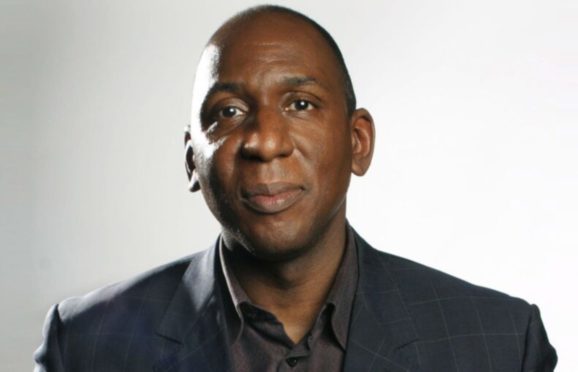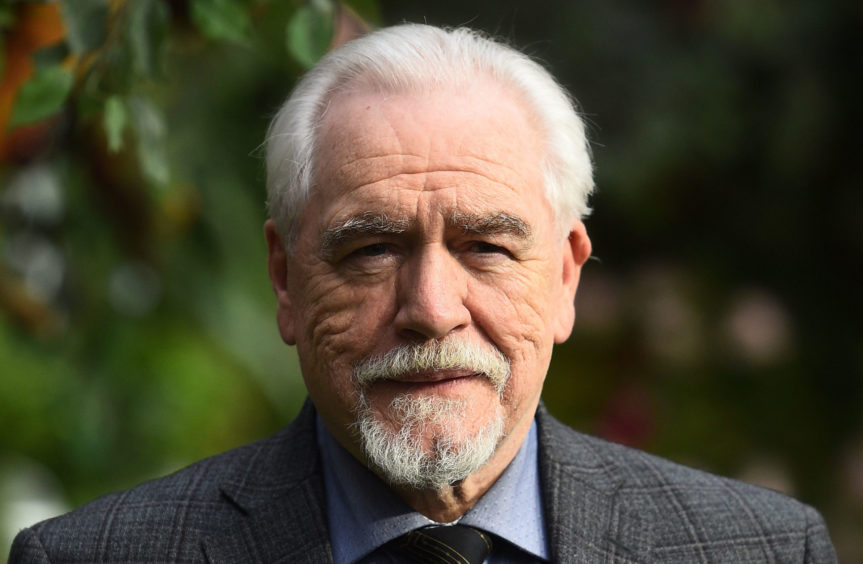
Outlander star Colin McFarlane hopes to further explore his links back to Scotland thanks to a newly released online collection of old parish records.
The London-born actor, who plays slave Ulysses in the hit drama, has found a connection via his surname to a Scottish doctor on a Jamaican plantation.
The 59-year-old hopes to delve deeper into his family’s past, believing that understanding our identity and sense of belonging is ‘crucial’.
Speaking at a launch event for genealogy company FindMyPast’s new collection, McFarlane said: “There was a rumour that there was a doctor in the family somewhere.
“We’ve now found that there was a Scottish doctor at a plantation in Montego Bay in Jamaica, where my father’s side of the family were from, and we found his name, information and where he was from.
“All the slaves took their names from their owner, so I am related to this man, which is quite extraordinary.”
Listening to the brilliant Scottish actor Brian Cox talk about his family history on a wonderful @findmypast event announcing 11 million new Scottish records. I spoke to @Writer_DG about this today as she had something to add to the story I am telling at the end of of the event!
— Colin McFarlane (@colinmcfarlane) July 29, 2021
DC Thomson owned Findmypast’s new collection, launched this week, has added almost 11 million records, dating back to 1561.
The new additions, which make it the largest collection of Scottish records available online, are the result of collaborative work between a number of institutions, libraries, archives and individuals.
It means more family stories and heritage can be uncovered and passed on to future generations.
Scipio Kennedy
As an example, McFarlane told the story of Scipio Kennedy, who was taken into slavery as a child from Guinea, West Africa, and put to work at Culzean Castle in Ayrshire. He was eventually freed, and later married and had at least eight children.
“Although being born thousands of miles away, he became a Scotsman through and through, a man who because of these records continues to leave his mark on Scotland today,” McFarlane said.
“It’s said as long as we remember a person, they’re not really gone. They become a part of us. Thanks to records like this new collection, so much more of Scottish history never dies.
“After this, hopefully I can now uncover my own Scottish story, and the roots will no doubt be similar to those of Ulysses and Scipio. Maybe I might officially be able to call myself a Scot, who knows.”
McFarlane also revealed that he had spoken to Outlander author Diana Gabaldon recently and found out that there was a freed slave character called Scipio in her upcoming book, Go Tell The Bees That I Am Gone
Importance of family
McFarlane, who also starred in Batman Begins and The Dark Knight, is the founder of charity Making History, which aims to help children research their own pasts.
He also has two adopted children from north of the border, which has helped highlight the importance of family connections.
McFarlane said: “The impact of names, family and identity was underlined when my beautiful, alabaster-skinned, ginger-haired daughter surprised me just two years ago at Christmas, where she decided to change her name by deed poll to McFarlane. I’m not ashamed to say it made me cry.
“Since we took her and her brother into our family, everything Scottish seems to come towards me. Securing the role of Ulysses in Outlander, set in Scotland with a Scottish story at its heart underlines all of that.”
Brian Cox on looking back
Also speaking at the event was Succession star Brian Cox, who told the story of how his family arrived in Scotland from Ireland at the time of the industrial revolution. Cox said: “My whole interest in my past really came from the fact I knew very little about it, particularly where I was from, my parents, my grandparents.
“I believe it’s very important to understand your roots, where they really are and how it serves you. Not just in terms of your own history, but what you carry in your DNA.
“We carry for generations memories of things that have happened, and not particularly nice things.”
Cox, who is in the process of publishing his memoir, added: “All of this information has been so important to me, piecing together the picture of who my family were, and also who I am.”
Myko Clelland of Findmypast said: “We are honoured to work with such a large number of outstanding organisations to make Scottish family history accessible worldwide.
“This has enabled Findmypast to not only illuminate the lives of influential Scots who have played pivotal roles in history, but also tell the stories of ordinary and often overlooked people who, through centuries of effort, have shaped the world we now live in and are responsible for everything we know and love as Scotland today.”

Enjoy the convenience of having The Sunday Post delivered as a digital ePaper straight to your smartphone, tablet or computer.
Subscribe for only £5.49 a month and enjoy all the benefits of the printed paper as a digital replica.
Subscribe © Kirsty O'Connor/PA Wire
© Kirsty O'Connor/PA Wire